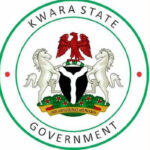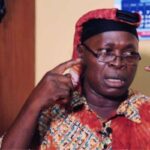The framers of Nigeria’s grand norm (the constitution), had in mind the heterogeneous nature of ethnic group composition and mixtures of the country, when the constitution was drafted in secularity form.
In essence, secularism makes no particular religion a dominant or state religion thereby separating religious institutions from state institutions and a public sphere where religion may participate but not dominate, and by this intention, gives religious freedom to all citizens.
- After recovery of 11 soldiers’ bodies: Army denies killing 70, locals want probe
- NPFL clubs re-strategizing for second round
Secularism nature of Nigeria constitution protects both believers and non-believers. It seeks to ensure and protect freedom of religious beliefs and practice for all citizens. On general terms, it wants freedom of thought and conscience to apply equally to all citizens alike. Therefore, Nigeria is a democratic nation and so deserves every ingredient of secularism to be applied in all its affairs as it champions equality before the law. No religious or political affiliation gives advantages or disadvantages and religious believers are citizens with the same rights and obligations as anyone else.
The above assertions are adequately captured in some of the sections and subsections of Nigeria’s 1999 Constitution (as amended). Leading the light on this discourse is section 38 (1); Right to freedom of thought conscience and religion.
Section 38(2), no person attending any place of education shall be required to receive religious instruction or to take part in or attend any religion ceremony or observance if such instruction, ceremony or observance relates to a religion other than his own or a religion not approved by his parent or guardian.
Section 38 (3), no religious community or denomination shall be prevented from providing religious instruction for pupils of that community or denomination in any place of education maintained wholly by the community or denomination.
(b) Section 42 (1), Right to freedom from discrimination (see sub section a and b of section 42 (i))
(c) Section 44(i), compulsory acquisition of property; no moveable property or any interest in an immovable property shall be taken possession of compulsorily and no right or interest in any such property shall be acquired compulsorily in any part of Nigeria, except in the manner and for the purposes prescribed by a law that among other things (see, sub section a and b of this same section 44(1) ).
Now on Kwara State hijab saga
The term hijab simply means headscarf in literally English interpretation. Though, it means concealment of women adornment in Arabic and Islamic faith interpretation. This help to extinguish the urge and capacity of adornment to help a woman attract the sexual attention of men.
Without losing sense of focus, the Hijab to the Muslim faithful is inherent in the life of every woman of Islamic faith; that is because it is a divine command by Allah (SWT) to every Muslim woman to wear hijab as women dressing code.
The Qur’an and Sunnah have laid down certain principles regarding the dress code of both males and females. They are required to observe the Islamic teachings both internally and externally. Almighty Allah (SWT) says in the Holy Qur’an surah al-A’raf “O children of Adam! Surely; we have bestowed upon you a garment to cover your shame as well as to be an adornment to you and the garment of piety is the best * (Qu’ran 7:26).
In other words, Allah (SWT) has bestowed upon them clothing to conceal their private parts and as adornment. Again, in surah an-Nur * Allah (SWT) says, “And tell the believing women to reduce some of their vision and guard their private parts and not expose their adornment… and to wrap a portion of their head covers over their chests and not expose their adornment, except to their husbands, their fathers… and let them not stamp their feet to make known what they conceal of their adornment (Qur’an 24:31). The messenger of Allah, Prophet Muhammad (SAW) said; “A woman is supposed to be concealed when she emerges outside without covering herself properly, Shaytan (Satan) makes her adorned in front of men. Equally in surah al-Ahzab, Allah says; * O Prophet tell your wives and your daughters and the women of the believers to draw their cloaks (hijabs or veils) all over their bodies…That will be better, that they should be known as free respectable women, so as not to be annoyed * (Qur’an 33:59).
On the society front, it is necessary for a Muslim woman to dress as professed by her faith as that helps to avert frequent occurrence of rape cases by rapists in the society. Going by all these explanation, it seemed justifiable for parents of Muslim female students in any government owned schools to protest and ensure their daughters wear hijabs. Except in those schools owned wholly by other faiths other than government and that of their own Islamic faith.
It is incumbent on them to encourage their daughters to wear hijabs because it is a divine command on them by Almighty Allah and not on their individual whims and caprices to initiate usage of hijabs on their daughters.
For the missionary schools – both Christian and Muslim owned – they have every right to determine to what extent their school uniforms should be like in terms of colour, design and shape. But such right is limited to the schools they privately own and finance without government aided funds or not being in joint partnership with government or any other external body. The rights of students of other faiths to profess their faith without hindrance or being subjected to forceful acceptance of other faiths norms and cultures are enshrined in section (38 (1) (2) and section (42 (1) a and b”) of 1999 Nigeria constitution as amended.
Again, agitation for the ownership and taken over of schools by missionaries from the government can best be pushed through the legal means as provided in section (44 (1) of 1999 Nigeria Constitution (as amended).
Abdullahi Ocheja S. writes from Abuja

 Join Daily Trust WhatsApp Community For Quick Access To News and Happenings Around You.
Join Daily Trust WhatsApp Community For Quick Access To News and Happenings Around You.

